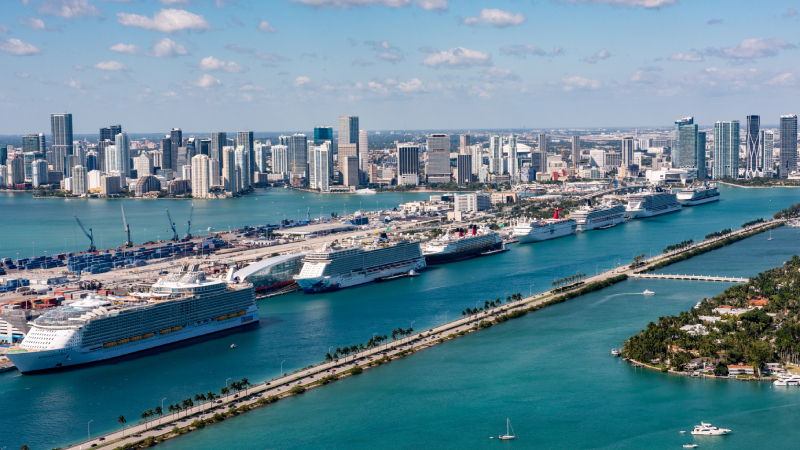
As tensions rise over tariffs imposed by the U.S. government, there’s an observable shift in Canadian travel trends, particularly concerning trips to the United States. While some cruise companies report stable business levels, the sentiment among Canadian travel advisors indicates a significant decline in cruise bookings from Canada, particularly those requiring transit through U.S. ports.
Impact of Tariffs on Travel
Flemming Friisdahl, founder and president of Travel Time America Network (TTAND), noted that cruise lines have reported bookings from Canada dropping by as much as 20% during February compared to previous years. This contrasts with a noteworthy increase of 5% to 15% in U.S. bookings, signifying a tangible shift in consumer behavior.
“There’s no question that Canadians who prefer cruising but must pass through the U.S. are impacting cruise line profitability,”
Friisdahl added, indicating a broader discontent among Canadian travelers. Rocky Racco of TTI Travel echoed this sentiment, remarking that U.S. travel is significantly down amongst Canadian clients. Racco confirmed this applies to both air and cruise bookings, highlightening the growing reluctance to travel south.
Future Bookings Dynamics
Since vacation plans are often made well in advance, many Canadians who are uneasy about traveling to the U.S. may still proceed with trips to avoid cancellation fees. Experts predict it may take an additional month or more for the full impact of this sentiment to manifest in booking statistics.

Changing Preferences Among Travelers
Travel agents have noted an increasing interest among clients for cruise options outside of North America, particularly in Europe, Australia, New Zealand, and South America. Pat Probert from TravelOnly highlighted a noticeable increase in inquiries about alternative destinations, reflecting a potential shift towards more international cruise experiences.
Emerging Markets for Canadian Travelers
Meanwhile, Ian Patterson, Country Manager for MSC Cruises Canada, revealed that their Canadian bookings have seen significant growth. “The first quarter of 2024 was spectacular, and we’re significantly ahead of that for the first quarter of this year,” Patterson stated, underscoring the potential for cruise companies to adapt to these changing demands.
Additionally, with the Canadian dollar currently trading around 70 cents against the U.S. dollar, many Canadians feel the financial squeeze when considering trips to the U.S. Travel experts suggest that travelers may look towards destinations where their currency holds more value, such as Australia and New Zealand, where the exchange rates currently favor Canadian visitors.
Expanding Horizons: The New Travel Landscape
As the travel climate becomes increasingly complex, agents are responding with a focus on promoting other attractive destinations. Flemming Friisdahl remarked that travel advisors must recalibrate their sales strategies to highlight more cost-effective options amid the current political climate, suggesting a broader awareness of global travel opportunities.
Furthermore, Brenda Slater from Beyond the Beach indicated that despite tariff debates, many avid cruise enthusiasts may continue with their plans. Many Canadians are also considering less traditional cruises, expressing interest in remote destinations such as Japan, the Arctic, Antarctica, and the Galapagos Islands.
As cruise trends evolve, a blend of increasing prices, financial considerations associated with currency exchange, and shifting political landscapes will likely continue to shape Canadian travel preferences. For additional insights into navigating these changing travel dynamics, visit resources like TravelOnly for tailored travel advice and bookings.

In summary, the evolving environment for Canadian travelers poses both challenges and opportunities. As travel preferences pivot due to economic pressures and political sentiments, it becomes essential for both travelers and agents to stay informed and adaptable in their planning and bookings.

